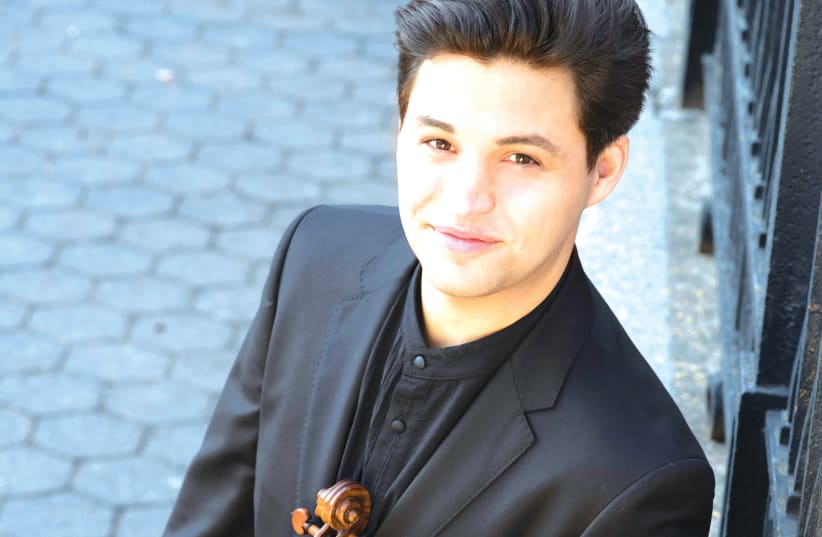Mathatias, 32, who has been recognized as one of the most celebrated talents of his generation, adds: “that said, I am the last to complain – despite the pandemics, I was lucky to perform and even travel quite a lot, playing between the lockdowns before the audience and recording concerts both in Israel and abroad. Also, I’ve managed to teach – something that I really enjoy but do only rarely, because I tour a lot.”
For Mathatias, who has left his native country at an early age to study abroad and who makes New York his home base for his globe trotting career, the pandemics gave an opportunity to spend more time with his family and friends, but not only. “Performing less, I’ve got more time to learn new pieces that I will play in the upcoming seasons and to give a more profound look at those I’ve already performed.”
With all due respect to recorded concerts, Mathatias confides that “seeing the audience coming back to the concert halls all over the world makes me really happy. Recordings are nice, but nothing could replace the immediate contact with the listeners in the hall. You physically feel their tense attention to the live music making and it causes you to play differently, more spontaneously. For us musicians, this is air to breath. But also for the audience.”
Mathatias is very optimistic regarding the future of the concert life. “This is true that many orchestras have been closed or are about to be closed and this is just awful. To revive music life, huge amounts of money have to be invested, but the audience shouldn’t be underestimated. The sudden disappearance of concert going experience – which goes far beyond listening to live music performance – has created a new hunger for quality music and culture events, for that matter. Many people have realized that there’s no replacement to listening music first hand. I believe that due to this new Renaissance, more people will stream to concert halls. In fact, it already happens – in Israel, most of the concerts are sold out.”
On May 8, Mathatias, with the Israel Camerata Jerusalem under Noam Zur, will offer a Viennese music program. It features Concerto #5 for violin and orchestra, by Mozart, which Mathatias defines as “perfection incarnate: not a single note could be changed in this piece, written by Mozart when he was only 19 years old.” In addition, he .ill play two showcase pieces by Fritz Kreisler, “Schön Rosmarin” and “Tambourin chinois,” “Composed in the 1910’s, they go well go well with Mozart’s concerto and depict beautiful, comfortable, very “Old World” life in Vienna before the WWI.”
The concert will take place at the Tel Aviv Museum of Art in the framework of Museum’s chamber series and will be repeated in Ness Ziona Pais Art Center next night.
Later this month, Mathatias will perform Mendelssohn’s violin concerto with the Rishon Lezion Symphony.
But the most intriguing program comes in June, when Mathatias, together with the Rishon Symphony will participate in the Israeli Opera special project. It features a ballet show by the world renowned Amsterdam based Israeli choreographer Itzik Galili to “The Four Seasons,” by Vivaldi. Mathatias will play solo parts and also lead the orchestra. “For years I avoided performing this over played master piece, but when they called me from the opera I agreed without hesitations: it will be interesting to see how Galili translates music into dance.”
